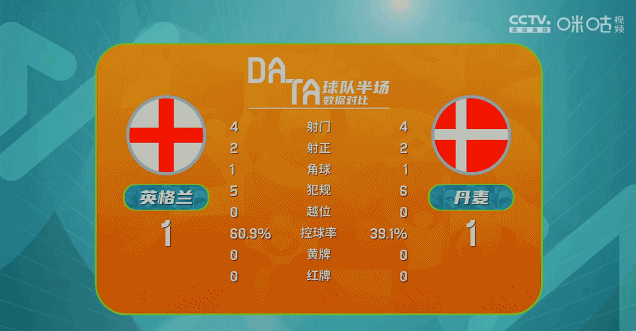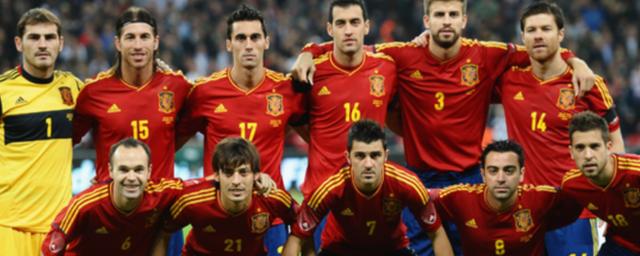TheEnduringLegacyoftheUEFAEuropeanChampionship:AJourneyThroughTime
The UEFA European Championship, often referred to as the Euros, is one of the most prestigious tournaments in the world of football. Since its inception, it has captivated audiences across the globe, showcasing the best of European football talent. This article delves into the history of the Euros, exploring its evolution, memorable moments, and the impact it has had on the sport and its fans.

The Birth of a Tournament
The idea of a European championship was first conceived in the mid20th century. The inaugural tournament took place in 1960 in France, with only four teams competing. The Soviet Union emerged as the first champions, defeating Yugoslavia in the final. This modest beginning laid the foundation for what would become a quadrennial event, growing in stature and popularity with each edition.
Expansion and Popularity
Over the years, the Euros expanded its format to accommodate more teams, reflecting the growth of football across the continent. By 1980, the tournament had grown to include eight teams, and by 1996, it had doubled to sixteen. The expansion allowed for a broader representation of European football, enhancing the competition's appeal and competitiveness.
Iconic Moments
The Euros have been the stage for some of football's most unforgettable moments. Who can forget the "Panenka" penalty by Antonín Panenka in the 1976 final, which has since become a staple in the football lexicon? Or the "Miracle of Istanbul" in 2004, where Greece, considered underdogs, defied all odds to win the championship? These moments have not only enriched the tournament's history but have also inspired generations of players and fans.
Technological Advancements
As with many sports, technology has played a significant role in the evolution of the Euros. The introduction of goalline technology and video assistant referees (VAR) has helped to ensure fair play and accurate decisionmaking. These advancements have been met with varying degrees of acceptance, but they underscore the tournament's commitment to maintaining the highest standards of competition.
Cultural Impact
Beyond the football pitch, the Euros have had a profound cultural impact. The tournament brings nations together, fostering a sense of unity and camaraderie among fans. It also serves as a platform for host countries to showcase their culture and hospitality. The economic benefits of hosting the Euros are significant, with infrastructure improvements and tourism boosts contributing to longterm growth.
The Future of the Euros
Looking ahead, the Euros continue to evolve. The decision to host the 2020 edition across multiple countries was a bold move, designed to celebrate the 60th anniversary of the tournament. While the pandemic disrupted these plans, the Euros demonstrated resilience, adapting to the challenges and successfully completing the tournament in 2021. The future of the Euros looks promising, with plans to expand the tournament to 24 teams ensuring that more nations can participate in this prestigious event.
Conclusion
The UEFA European Championship has come a long way since its humble beginnings in 1960. It has grown into a tournament that not only showcases the pinnacle of European football but also unites nations and celebrates the beautiful game. As the Euros continue to evolve, its legacy as one of the world's premier football competitions is secure, promising many more years of thrilling matches, iconic moments, and unforgettable memories.
In conclusion, the Euros have not only stood the test of time but have also adapted and thrived, becoming a cornerstone of the football calendar. As fans, we eagerly anticipate each edition, knowing that the tournament will deliver drama, excitement, and the opportunity to witness history in the making. The enduring legacy of the UEFA European Championship is a testament to the power of football to inspire, unite, and entertain.
欧洲杯直播
MORE>-
03-31农行去年业绩亮眼,营收净利增速领跑同业
-
03-31缅甸反政府武装停火两周,积极参与救灾,展现人道关怀
-
03-31王琳,雪姨的婚纱短裙走秀,展现年龄之美与自信之光
-
03-31媒体的力量,甲亢哥如何不仅让世界认识中国
-
03-31中国救援队抵达缅甸后的辛勤付出,不眠之夜,只为守护生命之光
-
03-31揭秘世界上最大的宫殿的兴衰史,从辉煌到坍塌的震撼历程
-
03-31揭秘三桶油,揭秘背后的成功之道与未来展望
-
03-31特朗普,必须拿下格陵兰岛—透视背后的战略意图与全球影响
-
03-31小马科斯姐姐眼中的杜特尔特,权利被侵犯的困境
-
03-31订婚强奸案背后的故事,男方母亲坚决否认暴力强迫
-
03-31泰女子眼中的中国救援队赴缅,跨越国界的情感共鸣
-
03-31外媒观察,美国关税举措可能引发全球连锁反应—深入了解与观察
-
03-31缅甸强震前后对比图,揭示灾难的残酷与重建的希望
-
03-31家庭中的小冲突与儿子的保护之心
-
03-31四大行获5000亿元补充资本,专家深度解读背后的意义
- 搜索
- 最近发表
-
- 农行去年业绩亮眼,营收净利增速领跑同业
- 缅甸反政府武装停火两周,积极参与救灾,展现人道关怀
- 小刀郎现身刀郎演唱会门口,一场音乐传奇的重逢
- 王琳,雪姨的婚纱短裙走秀,展现年龄之美与自信之光
- 揭秘缅甸地震,专家眼中的巨刀切入地球
- 美国对缅甸未采取实际救援动作的背后原因
- 汤加群岛发生地震,如何应对与理解地震灾害?
- 媒体的力量,甲亢哥如何不仅让世界认识中国
- 泽连斯基呼吁,西方世界需对俄罗斯的袭击做出回应
- 中国救援队抵达缅甸后的辛勤付出,不眠之夜,只为守护生命之光
- 深度解析,特朗普与民主党的纠葛与挑战—刨根背后的政治博弈
- 揭秘世界上最大的宫殿的兴衰史,从辉煌到坍塌的震撼历程
- 中俄携手救援搁浅中国货船,深化合作展现大国担当
- 利率3%以下银行消费贷,何去何从?
- 揭秘地球并未进入震动模式,专家解读与我们的日常生活
- 揭秘三桶油,揭秘背后的成功之道与未来展望
- 胡锡进解读中美关系的微妙平衡,战争并非双方所愿
- 特朗普,必须拿下格陵兰岛—透视背后的战略意图与全球影响
- 小马科斯姐姐眼中的杜特尔特,权利被侵犯的困境
- 缅甸华人抱团互救,铃声中的生命救援力量
- 标签列表
-
- 2024欧洲杯比赛时间 (22)
- 2024年欧洲杯预选赛 (24)
- 2024欧洲杯百度百科 (19)
- 欧洲杯一场比赛打多久 (11)
- 怎么看欧洲杯直播 (10)
- 2024欧洲杯杯 (10)
- 欧洲杯2024在哪个国家 (13)
- 欧洲杯为什么2023年举办 (10)
- 欧洲杯为什么没有直播 (12)
- 欧洲杯共多少场比赛 (11)
- 在哪里可以看欧洲杯预选赛 (18)
- 2024欧洲杯主办城市 (15)
- 欧洲杯一场比赛时间多长 (11)
- 欧洲杯参赛球队有几支 (10)
- 欧洲杯有多少只球队参加 (11)
- 欧洲杯多久举行一次 (10)
- 欧洲杯在哪个国家举行2024 (11)
- 欧洲杯一共多少球队 (10)
- 欧洲杯为什么这么受欢迎 (10)
- 为什么欧洲杯看不了 (11)
- 欧洲杯为什么没有中国 (10)
- 欧洲杯决赛怎么看 (11)
- 直播软件 (12)
- 直播吧官网 (13)
- 直播吧 (14)




